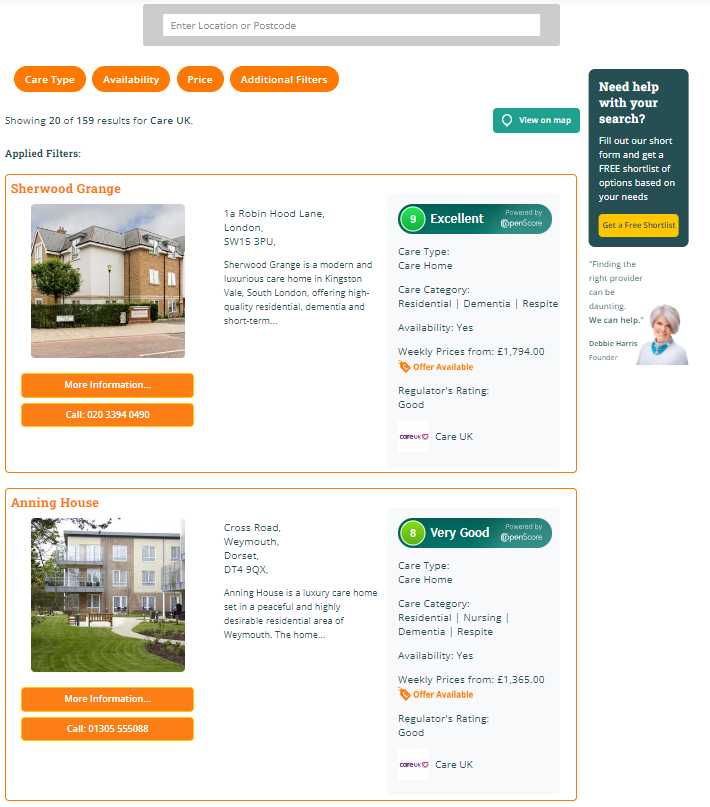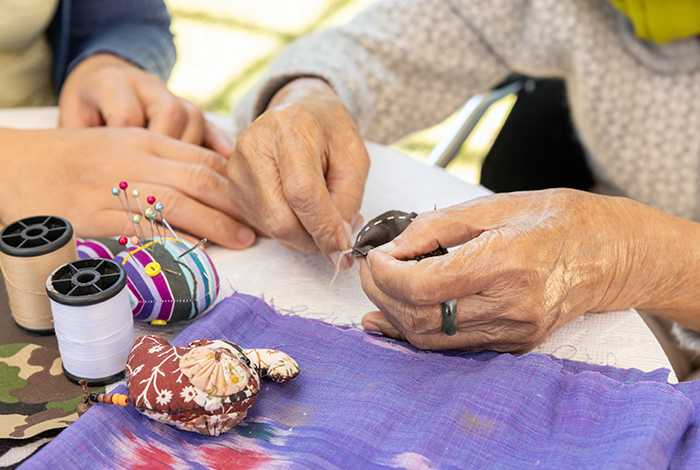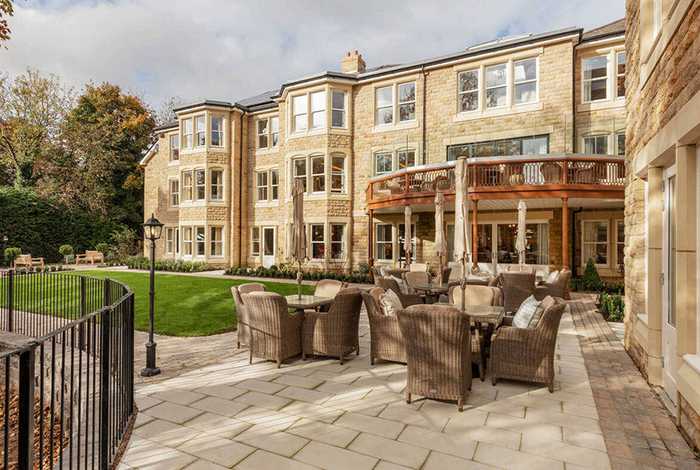Posted by Janine Griffiths
Choosing the Best Care Homes: A Comprehensive Guide

Choosing the best care home is a decision that can significantly impact your quality of life and wellbeing. However, the process of selecting a home for yourself or a loved one can be overwhelming.
Recognising that everyone's care needs are unique, we have created a comprehensive directory to demystify this process for you.
In this guide, we will walk you through key considerations such as location, food, budget, social life, and care needs to help you find a home that matches your lifestyle.
Assessing Your Care Needs Budget
There are many different types of care homes including residential care homes (not to be confused with retirement homes, which are more suited to independent living) to nursing care homes and dementia care homes.
The type of care home you should choose depends on the level and specific care you require.
A care needs assessment, available for free through GOV.UK, is a professional evaluation provided by your local council to help determine which kind of facility will work best for you.
Depending on the outcome of the assessment, you will receive a care and support plan which will specify your needs, budget, outcomes you wish to achieve and a payment plan.
If you are still unsure which type of care home will be right for you, our elder care advisors can provide you with further support and assistance.
Budget
The amount you pay for your care depends on how much savings you have, the amount of funding support you are entitled to, and the type of care home you are going to.
You may be able to receive help with care costs from your local council or via the NHS if needed.
A financial assessment will be conducted before entering a care home to determine if you are eligible for financial support, depending on the value of your savings, income, and assets.
Council assistance for care costs in England is typically available if your savings are under £23,250.
The cost of a care home varies and depends upon the amount of support you need for day-to-day activities, location, accommodation and more.
To estimate your care home costs, Autumna’s directory can help you gauge how much you might need to pay for a care home.
For more information about paying for care, our blog: 'Can my home in England be sold to pay for long-term care' provides comprehensive information on paying for care.
Accessibility
When selecting the best care home for your needs, evaluate how the location, disability support offered, and nearby amenities will impact your daily life. For example, many older people prefer to stay close to their loved ones, while for others disability access and parking are their main concerns. Below, we highlight the considerations you should think about when assessing the accessibility of a care home.
Location
What is your ideal location? Remember that picking a care home nearby will make family and friend visits more convenient. You may also prefer it to be close to amenities like shops, cafés, and local towns or villages. It is important to be aware that the location of a care home may also impact its cost.
Care homes in London and South East England generally have higher fees, while facilities in Northern Ireland, Scotland, and Wales often have lower fees.
For more on the cost of care homes in specific areas, Autumna’s directory can help you analyse how much you need to pay for your care home.
Access to Healthcare
When evaluating the accessibility of a care home, it is important to consider how far it is from your local GP, mental health support and other medical services or facilities. Additionally, assess whether the care home has appropriate access and support for people with disabilities.
Parking and Transport
Be sure to consider the availability of adequate parking and the importance of strong transport links at your chosen care home. These aspects can play a crucial role in ensuring convenient access for both you and your visitors.
Care Home Ratings
When evaluating a care home, it is important to factor in its ratings. Typically, the best care homes will have higher scores. The main ratings to consider are:
Care Quality Commission Ratings
The care quality commission (CQC) is the independent regulator of health and social care in England. It inspects and ranks residential care homes and nursing homes in England. The four main scores it gives to care providers are:
- Outstanding – this is the highest score and shows that the service is performing exceptionally well.
- Good – a provider is performing well and meets all expectations.
- Requires improvement – the provider is not meeting expectations and the CQC has made recommendations for it to improve.
- Inadequate - a care home is performing poorly and the CQC has taken remedial action against the person or organisation behind it.
Care Inspectorate Scotland
The Care Inspectorate is the independent regulator of health and social care in Scotland. It inspects and ranks residential care and nursing homes in Scotland. It has a six-point scale to rate care homes which include:
- Unsatisfactory – indicates major weaknesses, requiring urgent remedial action.
- Weak – contains significant weaknesses, with priority action needed.
- Adequate – a provider has strengths that just outweigh weaknesses.
- Good – a provider has an adequate service with some improvements needed.
- Very Good – a provider has major strengths.
- Excellent – this is the highest score and indicates an outstanding service.
Care Inspectorate Wales
The Care Inspectorate Wales is the independent regulator of health and social care in Wales. In July 2024, the Care Inspectorate released an evaluation of its unpublished or silent ratings pilot for care home and domiciliary support services.
If implemented, it will use a 4 point system to rank care homes, which include Excellent, Good, Needs Improvement, and Poor.
Regulation and Quality Improvement Authority
In Northern Ireland, inspections are carried out by the Regulation and Quality Improvement Authority (RQIA).
When assessing care homes, the RQIA focus on 4 key outcomes:
- Is the care safe?
- Is the care effective?
- Is the care compassionate?
- Is the service well-led?
They also publish their inspection reports publicly online.
OpenScore

OpenScore is the social care sector's first independent care home review system. It ranks providers based on multiple data sources and gives each a score out of ten. When using the Autumna directory to search for care providers, you'll find it featured on many of the profile pages of listed care homes.
The top 5 care homes with the highest score have a 9/10 rating and include the following facilities, Jubilee House, Woodside Grange Care Home, Bod Hyfryd Care Home, Wren Hall Nursing Home and Hill Brow Residential Care Home.
Please be aware that OpenScore is currently undergoing testing and may not be available for all care homes at this time.
Quality of Life
Your quality of life is probably one of the most important considerations you should think about when trying to evaluate the best care homes for you or your loved one. Quality of life includes everything from food, social activities, staff, cultural considerations, living space, pets and more.
We take a brief look at all of these considerations below.
Food
In a care home, food is more than a necessity, it's all about comfort, joy, and a sense of home.
Consider whether the care home caters to specific dietary needs, ensuring all residents receive nutritionally balanced meals. It's beneficial to confirm if the food is prepared on the premises, as this can often guarantee fresher and more individual meals.
The best care homes will have a diverse and regularly changing menu, as it keeps mealtimes interesting and caters to varied tastes.
Finally, the availability of meal choices is important to ensure that residents can enjoy a variety of dishes and maintain a healthy, satisfying diet.
Be sure to check whether the care home has any recognised accreditations, ratings, or awards for its food. Autumna's 2022 launch of CHOICE Dining marked the introduction of the only nationally acknowledged food accreditation for the care industry. You can filter your search in the Autumna directory and click on 'Additional filters' to locate care homes that have achieved the CHOICE Dining certification.
Social Activities and Entertainment

Active, happy residents are a hallmark of the best care homes, which prioritise engaging social activities that contribute to a lively and fulfilling lifestyle.
Look for homes where residents appear occupied and happy, with access to television, newspapers, books, WiFi, and hairdressing services. Some care homes offer regular day trips for residents, so that is something to ask about when you visit the care home.
Many of the top-rated care facilities have many activities and forms of entertainment available. For example, Care UK own several care homes which, like Bickerton House include a coffee shop, activity room, pub and its own cinema.
Religion and Cultural Activities
If you have specific religious or cultural needs, then be sure to choose a care home that respects and accommodates these aspects so that you feel at home and supported in your beliefs and traditions.
Top care homes will be able to accommodate various religious needs, while some facilities will also be able to communicate with residents in their first language.
Living Space
Your living space can have a significant impact on your wellbeing and the way that you feel about a care home.
Therefore, it’s important to evaluate the room's size and features to ensure it meets your needs and preferences.
For example, is the room spacious enough to comfortably accommodate residents' belongings? The option to bring personal furniture, the availability of private bathrooms, and access to gardens are other factors to keep in mind. Whether you prefer a larger or more intimate home setting, these considerations contribute to a comfortable and personalised environment.
Safety
Safety is a paramount concern, even in the best care homes. Ensure that the facility is secure with features like motion or noise sensors to protect vulnerable residents. CCTV and access control in common areas are additional measures that enhance the overall security and peace of mind for both residents and their families.
As a minimum, care homes should have effective infection control and prevention information.
Pets
Some care homes allow you to take pets with you, whereas others do not. So, if there is a beloved furry friend you or your loved one cannot live without, this is something to keep in mind when making your selection.
However, the best care homes may even take this a step further and offer pet therapy to improve the wellbeing of their residents, while others may be specialist Pet Therapy Care Homes. Our directory helps you find pet-friendly care homes like Dormy's Bramshott Grange in Guildford, which offers pet therapy and regular animal visits.
Visiting the Care Home
After making a shortlist of suitable care providers, the next step is to contact and visit the care homes in question.
Before visiting, it's essential to prepare a list of questions to ensure you gather all the necessary information. Start by contacting the care home’s manager to discuss how the home can meet your loved one’s current and future needs.
It's also important to enquire about fees, as understanding the cost will help you to decide in advance whether a care home is going to be affordable for you. Request a written quote and ask if they have any available brochures. The more information you collect, the better equipped you'll be to make an informed decision.
Need Some Help Finding the Best Care Homes?
Our expert team of advisors can help you find the perfect care home for your needs, with our FREE shortlisting tool that can send you a list of suitable homes within minutes.
If you need further help and information, you can contact our advice line on 01892 335 330.
Receive a Free Care Home Shortlist!
Let our expert team of advisers get your search off to a great start.
Tell us a little about your needs and we'll send you a bespoke shortlist of care homes! Click the button below to begin, it takes just a few minutes.
Other articles to read
From the blog

Older Persons Care Advice
Best care homes in Leeds
January 21st, 2025
The best care homes in Leeds would surprise you. Some of these are facilities you never knew existed in the city. Read our blog to find out more.

Older Persons Care Advice
Guide to moving to a care home in a different area
January 20th, 2025
Read our ultimate guide to moving to a care home in a different area and find out about some of the major things they do not tell you when changing care homes.

Older Persons Care Advice
Top Mistakes to Avoid When Moving into a Care Home
January 15th, 2025
Discover tips for moving into a care home, from financial planning and location to ensuring a smooth transition. Make informed decisions with our expert guide.






